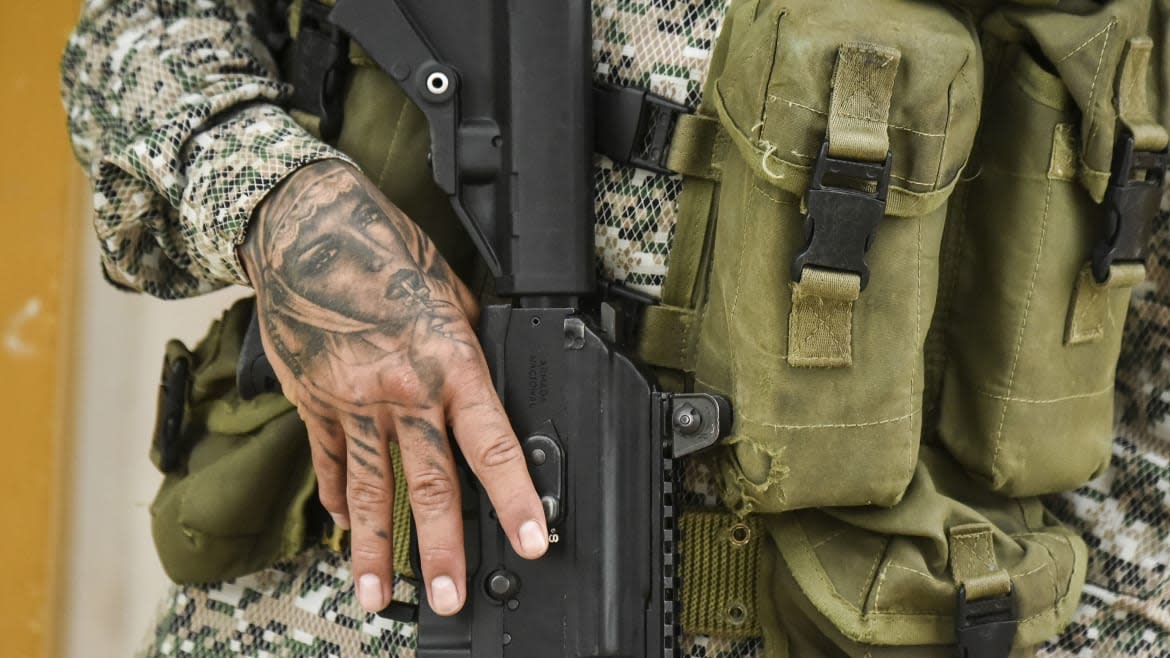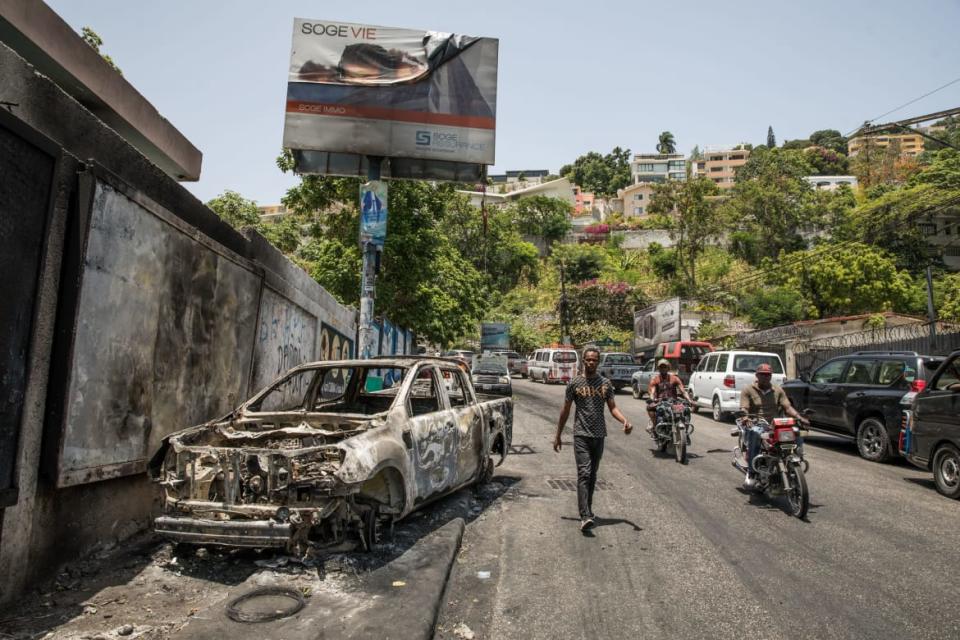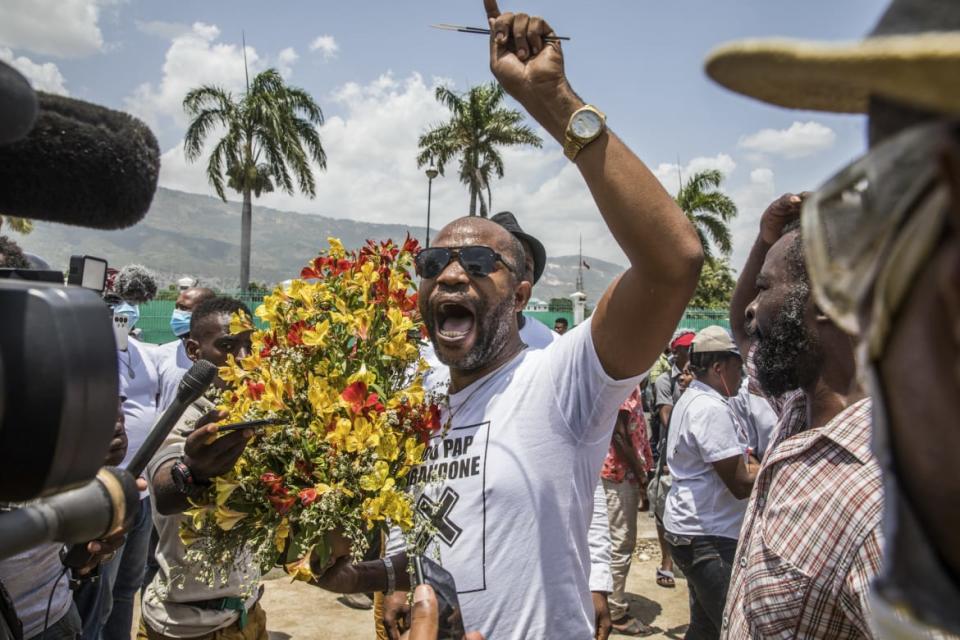U.S. Admits Training Colombians Accused of Killing Haiti President as Part of Billion Dollar War on Drugs

BOGOTÁ, Colombia—“‘Private contractor’ can mean a lot of things, all the way from a guy who fixes cars to a professional soldier,” says Diego, a Colombian special forces veteran who has spent the last eight years working for private security companies around the world, from Yemen, to Honduras, Africa, and Eastern Europe. He asked to use a pseudonym to avoid creating problems with his current employers.
“Even if you are in a potential combat role, your rules of engagement depend on the laws of the country where your contract takes you, the company you work for, your training, and who the client is. You might just be standing around guarding an oil pump, or you might be fighting.”
When asked if he has seen combat working in the private sector, Diego laughs. “I’ve had a lot of jobs, man,” he told The Daily Beast. “I was in the special forces, which attracts a certain kind of client. So maybe you can draw your own conclusions from that.”
Diego is one of thousands of Colombian fighters working in the private military sector. The country has been mass-producing soldiers for decades. Sought after for the considerable combat experience they gained fighting in the nation’s 50-year civil war and on the front lines of the drug wars, they can be spotted wherever there is conflict. Whether it’s working legally as contractors in Iraq, Yemen, or Afghanistan, acting as trainers for cartels in Mexico, bodyguards for drug lords, or providing security after the 2009 coup in Honduras.
And now the Haitian government claims that 21 of those Colombians working as private contractors helped assassinate Haitian President Jovenel Moïse in a nighttime assault that also left his wife seriously wounded.
A Pentagon spokesman told The Washington Post on Thursday that “a small number” of the Colombians detained in Port-au-Prince were part of U.S. training and education programs.
Long before the wars in Iraq and Afghanistan put private military contractors in the global headlines, the United States relied upon them heavily for the war on drugs in Colombia. In the early 2000s, Colombia was a laboratory of sorts, where the idea of using private companies to fulfill logistical military roles was first tested as part of the U.S.-Colombian joint program Plan Colombia, an operation that aimed to fight cocaine production and a leftist rebel guerrilla group, the Revolutionary Armed Forces of Colombia (FARC).
From 2000, when Plan Colombia began, until 2017, when Colombia implemented its historic peace deal with the FARC, the U.S. provided more than $10 billion in aid to Colombia, more than 70 percent of which went directly to the security forces.
“The drug war really pioneered this phenomenon,” said Adam Isacson, director of the Defense Oversight Program at the Washington Office on Latin America, an NGO that specializes in human-rights issues in the region. “At the beginning of Plan Colombia, they were hiring outsiders from countries like Guatemala and El Salvador.” But as time went on, these roles were increasingly held by U.S-trained Colombian professionals.
“Training trainers who could carry on the work was the primary mission goal,” said Luis Moreno, the former U.S. ambassador to Jamaica who headed up Plan Colombia. “But we also needed medics, pilots, logistical workers, mechanics, security experts. We didn’t want contractors actually doing operations, but that was at times unavoidable.”

The Colombian suspects are being held at Petionville Police station.
And that gap in manpower was filled partly by private contractors such as U.S. company DynCorp, which made hundreds of millions of dollars from Colombian contracts during the program.
But the program had an unexpected effect. Colombian soldiers who realized they could make 10 times more money working for the private sector than for the Colombian government began to leave in droves. “Blackhawk pilots trained by the U.S. were leaving to be private contractors [which the U.S. was also paying for] as soon as they finished training,” said Isacson.
“You have to understand that the rank-and-file of Colombian military and police come from the poorest segments of Colombian society,” says Carlos Martínez, an active member of the Colombian army for 10 years who now serves as a reservist. “These guys came from nothing. Many of them never had any economic or educational opportunities. A lot of my colleagues retired early to work as contractors. Making $3,000 to $5,000 a month is an unimaginable amount of money to any Colombian of that background.”
By the time Plan Colombia reached its pinnacle, the corporate mercenary world had gone global. In 2003, private military companies were generating upward of $100 billion a year, and though the industry is notoriously opaque, by 2020 that figure is estimated to have increased almost fivefold.
“War is extremely profitable,” says Martínez.
And it wasn’t just professional soldiers who were entering the profession. Both left-wing rebel groups and the right-wing paramilitary militias who supported the government during the civil war signed up as well. In the early 2000s, Colombia was the Wild West of warring paramilitary fighters, or paracos, the local term for these fighters. Most of these groups were involved in narco-trafficking, and all committed grave human-rights abuses. The paracos, some of whom indirectly benefited from U.S. training as well, tended to attract a different class of client, highly organized criminal groups throughout the world. And some Colombian soldiers trained by the U.S. to fight the drug wars, also opted instead to work for the other side.
Government officials in both the United States and Mexico accused groups like the Jalisco Cartel New Generation (CJNG by their Spanish initials) of recruiting former Colombian soldiers and guerrilla fighters to train their own members.

Locals were stunned by the death of Haitian President Jovenel Moise.
“The different Mexican cartels, especially the CJNG, one of the most violent, value the experience of Colombians because of how well they’ve been trained to fight,” one unnamed official from Mexico’s defense secretariat told Colombian press in 2018.
Former Jalisco Gov. Aristóteles Sandoval made similar allegations earlier that same year. And before that, former members of the Colombian special forces allegedly trained the Zetas, one of Mexico’s most ruthless crime groups—and one founded by former Mexican special forces members who first deserted to join the Gulf Cartel.
“You see a lot of ex-military and police in security agencies, where they pursue careers as bodyguards or as security escort teams, but I’ve also known people who worked with criminal groups,” Diego told The Daily Beast. “Many are seduced by the salaries these organizations offer and end up as mercenaries in the darkest sense of the word.”
Whether working legally for nations, for the darkest aspects of the underworld, or the innumerable gray areas in between, battle-hardened Colombians are likely to be a part of the opaque and growing world of private military forces for the long haul—all thanks to the U.S.-Colombian war machine.
Get our top stories in your inbox every day. Sign up now!
Daily Beast Membership: Beast Inside goes deeper on the stories that matter to you. Learn more.

